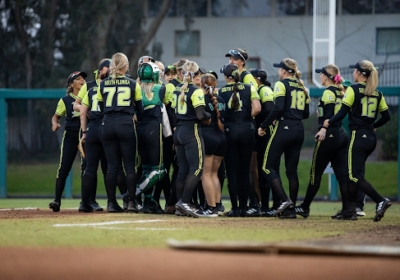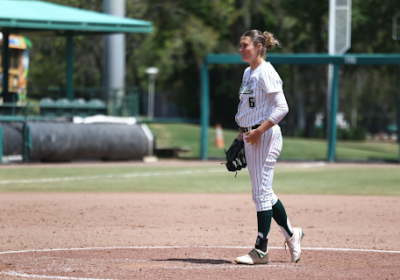Brown takes coaching to national level
USF women’s soccer assistant coach Chris Brown was asked to be a part of
something completely new in 2009.
He was asked was to become the head coach of the first ever women’s national team for the country of Guyana, a country on the northern coast of South America, which would try to make a run for the World Cup.
Without hesitation, Brown’s answer was yes.
It was at USF where Mark Rodrigues, the Guyanese team’s current technical
director, approached Brown with the idea of giving back to Rodrigues’ country through soccer.
Rodrigues and Brown crossed paths during the NCAA season when Rodrigues’ daughter, the current captain of the Guyanese team, played for Eastern Michigan University, but it wasn’t until Rodrigues moved to Tampa and volunteered for USF soccer in 2009 that he had the opportunity to offer Brown the coaching job.
“I didn’t hesitate,” Brown said. “It didn’t cross my mind to say no.”
Now, four years later, Brown will take the helm of team Guyana once again as they prepare to make a run for the 2015 World Cup in Canada.
Brown said the plan now is to hold the team’s first camp sometime in November, with the first round of qualifications for the Confederation of North, Central American and Caribbean Association Football (CONCACAF) region coming up in March or April of 2014.
Unlike other CONCACAF teams, such as Canada and the U.S., the number of camps Guyana holds depends on money — Guyana, Brown says, is very low on resources.
“We have to share limited resources with our men’s program,” Brown said. “Anytime the men’s team is in something, we kind of get put on pause, so this whole running for 2015 wasn’t decided until a month ago.”
The expectations of Guyana, in Brown’s eyes, have gone up since their last run in 2011 when the team made it to the Gold Cup.
For the CONCACAF region, the Gold Cup is what decides which teams will represent the region in the World Cup. The top three get an instant spot, while the fourth place team plays in a playoff match with a team from another region for a second chance at qualifying.
Brown said when Guyana was in the running in the fall of 2010, they placed seventh due to losing six starters who, due to NCAA playoffs in the U.S., were not released by their respective coaches.
Nevertheless, Brown said he and his team did something that no one saw coming.
“We made it into those eight teams, which is something no one ever expected, ourselves probably deep down inside included,” Brown said. “So to make it to that point was a very big accomplishment and a very big deal for Guyanese women’s soccer and actually just Guyanese sports, because even the men’s team, who has had a team for a very long time, had never made it to that point.”
Though the team’s first go at the Gold Cup could have gone better, the match that got them there showed the team what they could do. They won at home against Cuba.
“When the final whistle blew, just the tears and the passion that the fans and the girls had for that accomplishment — you can’t help but to get choked up,” Brown said. “It was an incredible situation to be a part of. “
While Brown’s second job as national coach has him excited for both Guyana’s next run and USF’s upcoming season, the excitement also stems to his wife and head coach of the USF women’s soccer team, Denise Schilte-Brown.
“I’m just excited for him,” Schilte-Brown said. “I know he’s really talented. I’m also excited for the exposure of the program. It’s not just good for our coaching staff but also for USF anytime we can get involved on the national level.”
Though the national spotlight will keep Brown busy, he said it won’t shift focus away from his job at USF.
“My focus has to be on both because I have to wear two hats to a certain degree,” Brown said. “My main focus is on USF because that is the most
immediate thing to me.”
Brown may be wearing two different hats, coaching two different groups of girls in two different countries, but soccer is soccer, he said. There are lessons that Brown brings back to the USF locker room.
There are quite a few international girls on the team from developed countries, and Brown said they don’t know how good they have it and shares with them a message.
“You have no idea what some of these girls that I’ve had to coach have to deal with,” Brown said. “They don’t have soccer cleats. When I got there most of the kids were running around in bare feet or sandals. You give them a pair of cleats and their eyes widen. You have something really special here, and you shouldn’t take it for granted.”






